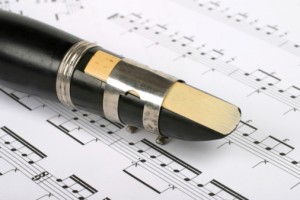As the weather finally warms up, I want to remind you all to remember heat can have a detrimental effect on the functioning of musical instruments. The best place to store your instrument is in the case and out of the heat or extreme cold.
For example, I have read that in the summer when the temperature rises to 90 degrees, your car can reach 110 degrees in just 10 minutes with all the windows shut.
A few summers ago, a young student arrived at my house for her weekly lesson. She had a student model clarinet, which was made of plastic. The intermediate and professional models are made of African black wood also know as Granadilla wood.
Each week as I greeted her at the door, I noticed her clarinet was always out of its case tucked under her arm like a baton.
One attribute of the clarinet that makes it a more challenging instrument is that it is an open hole instrument. This means most of the holes have a ring over them that when pushed down cause the other keys to function. The finger tips have to close the holes in order to create the notes as opposed to the saxophone, which is a brass closed hole instrument, because it has solid keys that you press with your fingers to produce the notes.
Other examples of open hole instruments are the flute and the bassoon.
As each week passed, instead of my young student gaining more control over those open holes, she seemed to be getting less and less sound until she reached a point where no sound was being produced at all.
In my attempt to figure out how to help her, I noticed that her clarinet was looking odd. None of the rings matched where the holes were, and they were somewhat elongated and the instrument was misshapen. Closer inspection revealed that the instrument had melted as if it were in a Salvador Dali painting. I tried playing her instrument and I couldn’t produce a sound.
That’s when I asked her, “Where do you store your clarinet? “ Her reply was “I keep it in the car, in the back where the speakers are outside of the case”
As we say farewell to the winter and move into the spring, just a reminder, temperature changes affect everything especially musical instruments. Take care to store them properly and they will give you many years of service and enjoyment.

